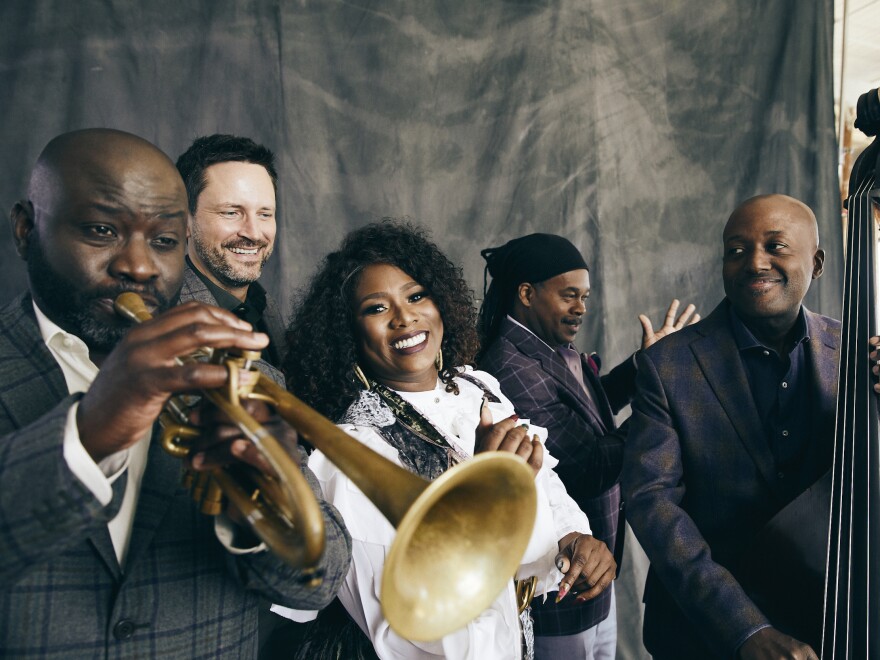Quentin Baxter and Clay Ross first met as students at the College of Charleston in the 1990s, where they played together in a jazz band. Decades later, they reunited and last month won a Grammy together as members of Ranky Tanky, a band that specializes in blending contemporary American gospel and R&B with Gullah traditional music.
As Ross explains, after spending the early 2000s playing in groups that toured through folk and world music festivals, he noticed that the traditions of his home state were glaringly absent from that scene.
"I just saw that no one was representing South Carolina music, and we have something really special to offer," he says. "And I just thought it was an important thing to champion, and I knew exactly who would be the best suited to do it."
So Ross reached out to Baxter, who was raised around the Gullah tradition; in 2016, they formed Ranky Tanky alongside Kevin Hamilton, Quiana Parler and Charlton Singleton. Now, after the critical and commercial success of Ranky Tanky's second album, Good Time, the group is poised to appear on some prestigious stages this spring, including a show with the Charleston Symphony Orchestra next month and a set at the New Orleans Jazz and Heritage Festival in April.
NPR's Michel Martin spoke to Quentin Baxter and Clay Ross about bringing together their diverse musical backgrounds, the impact of their music and celebrating their South Carolina roots. Listen to their conversation in the player above.
Copyright 2021 NPR. To see more, visit https://www.npr.org.





